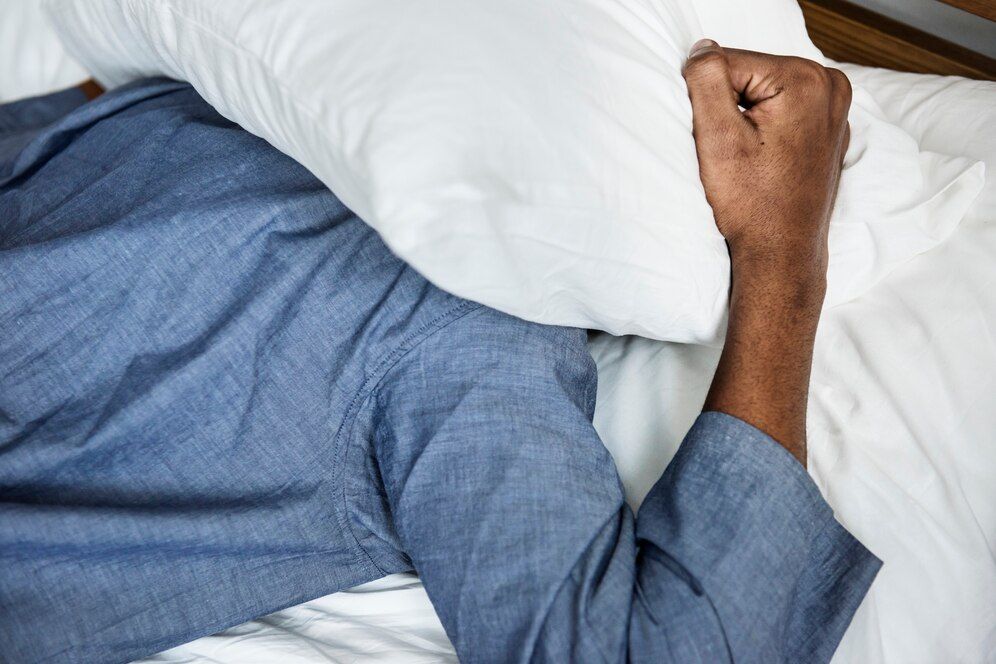Need a CPAP Alternative? Call: 717-995-3590
OFFICE PHONE: 717-995-3590
Dental Sleep Medicine for Insomnia: A Better Night's Rest Starts with Your Smile

Insomnia, characterized by persistent difficulties in falling or staying asleep, affects millions of individuals worldwide. The condition can lead to a series of health issues, such as daytime fatigue, irritability, reduced cognitive performance, and weakened immune function. While insomnia may stem from various factors, recent research suggests a possible connection between dental health and sleep quality. Dental sleep medicine professionals can help unravel this link and provide personalized treatment options to improve sleep.
As dental sleep medicine doctors based in Central Pennsylvania, our team recognizes the potential impact of dental health on sleep quality and the importance of proper diagnosis and treatment. We are dedicated to providing comprehensive evaluations that consider dental issues in conjunction with sleep disturbances, offering tailored solutions to address insomnia related to oral health.
The Link between Dental Health and Sleep Quality
Despite the seemingly unrelated nature of dental health and sleep, several factors connect them, highlighting the role dental health plays in sleep quality. Conditions such as teeth grinding (bruxism) and temporomandibular joint disorder (TMD) can directly contribute to sleep disturbances like insomnia. The relationship between oral health and sleep apnea highlights the significance of dental sleep medicine in addressing sleep issues. Recognizing these connections enables dental sleep medicine professionals to develop targeted treatment plans that address underlying dental factors contributing to insomnia.
Dental Issues Affecting Sleep
Various dental health issues can impact sleep quality and contribute to insomnia. Some common dental conditions known to disturb sleep include the following:
1. Teeth Grinding (Bruxism):
Teeth grinding, particularly during sleep, can lead to discomfort, tooth damage, and jaw issues, which can disrupt sleep. Additionally, the noise generated by grinding teeth may be disruptive to sleep partners, exacerbating sleep disturbances.
2. Temporomandibular Joint Disorder (TMD): TMD affects the jaw joint and surrounding muscles, causing pain and discomfort, limited jaw movement, and clicking or popping sounds when opening or closing the mouth. These symptoms can interfere with sleep and contribute to insomnia.
3. Obstructive Sleep Apnea: This sleep disorder, often linked to dental health, occurs when the upper airway becomes obstructed during sleep, causing cessations in breathing. Sleep apnea can fragment sleep, leading to poor sleep quality and insomnia symptoms.
Dental Sleep Medicine Treatments for Insomnia
Depending on the dental issues contributing to insomnia, dental sleep medicine professionals can offer personalized treatments to help alleviate sleep disturbances. Some common dental treatment options for insomnia include the following:
1. Custom-fit Night Guards for Teeth Grinding:
Custom night guards can be made by dental sleep medicine professionals to fit comfortably and protect the teeth, helping prevent the detrimental effects of bruxism and improving sleep quality.
2. Temporomandibular Joint Disorder (TMD) Treatments:
Treatment options for TMD may include the use of mouthguards or splints to reduce jaw strain, pain management methods, and physical therapy techniques to improve jaw function and reduce discomfort.
3. Oral Appliance Therapy for Obstructive Sleep Apnea: Dental sleep medicine professionals can create custom oral appliances designed to reposition the jaw or tongue during sleep, maintaining a more open airway and reducing the frequency of breathing disruptions associated with sleep apnea.
4. Sleep Hygiene Recommendations:
Dental sleep medicine professionals can also provide guidance on establishing healthy sleep practices, such as creating a relaxing sleep environment, maintaining a consistent sleep schedule, and addressing lifestyle factors that may influence sleep quality.
Seeking Diagnosis and Treatment from Dental Sleep Medicine Professionals
The first step toward addressing insomnia related to dental health issues is to undergo a comprehensive evaluation by a dental sleep medicine professional. These doctors are uniquely equipped to assess the potential impact of dental conditions on sleep quality. The comprehensive evaluation process typically involves the following:
1. Sleep and Medical History Review:
A dental sleep medicine professional will review the patient's medical and sleep history for any contributing factors that may indicate a relationship between dental health and sleep disturbances.
2. Thorough Dental Examination: A complete dental examination will be performed to identify any dental issues, such as bruxism or TMD, that could be affecting sleep quality.
3. Sleep Study Referral or Review: If necessary, the dental sleep medicine professional may recommend or review results from a sleep study to assess the presence of sleep apnea or other sleep disorders.
4. Personalized Treatment Plan Development: Based on the evaluation, the dental sleep medicine professional will develop a tailored treatment plan addressing the specific dental issues contributing to the patient's insomnia.
Dental Sleep Medicine for Improved Sleep Quality
Dental health plays a significant role in sleep quality, and understanding the connection between the two is essential for identifying and addressing potential causes of insomnia. Dental sleep medicine professionals are dedicated to detecting and treating dental issues that contribute to sleep disturbances, thereby improving overall sleep quality and well-being.
If you find yourself struggling with insomnia and suspect a dental issue may be the root of the problem, Pennsylvania Dental Sleep Medicine is here to help. Schedule a consultation today and embark on the journey to better sleep through personalized treatment options like
dental sleep medicine tailored to your unique needs.
Quick Links
All Rights Reserved | Pennsylvania Dental Sleep Medicine


